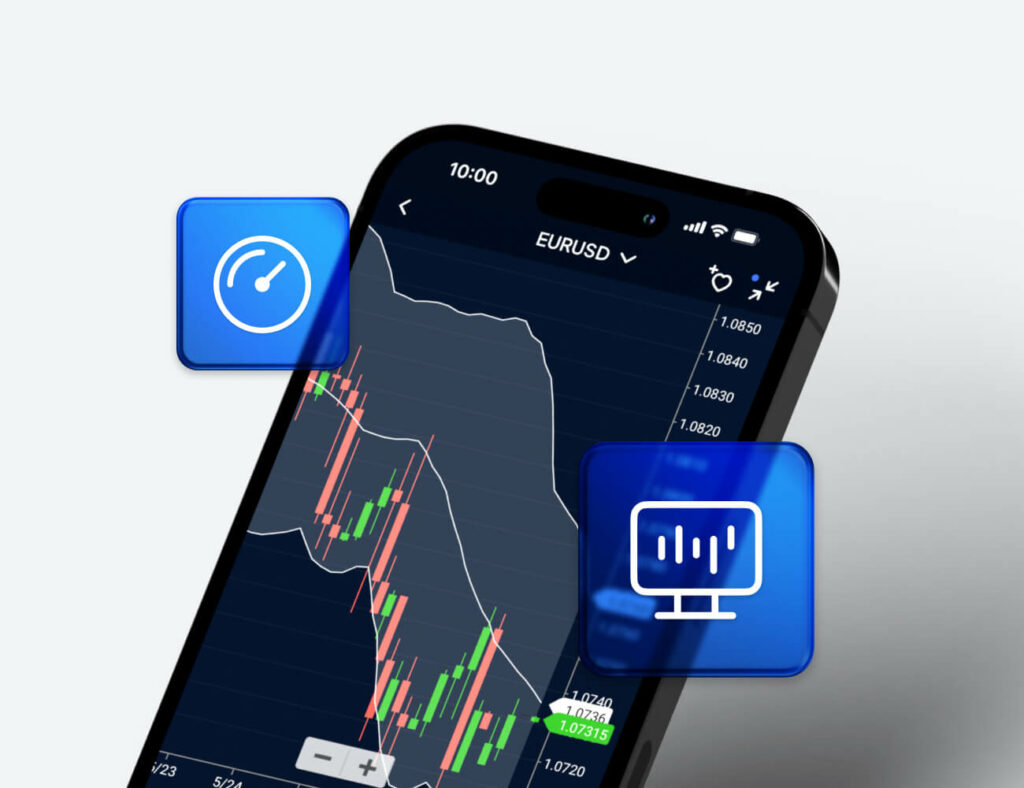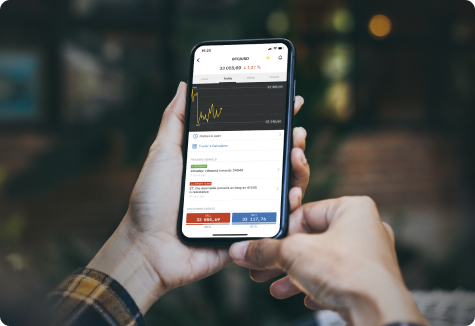What Is a Crypto Broker?
A crypto broker is a financial intermediary that provides access to digital assets such as Bitcoin, Ethereum, and other cryptocurrencies through trading platforms. Unlike exchanges, where traders buy and sell directly from one another, brokers execute orders on behalf of clients and often offer additional tools such as CFDs (Contracts for Difference), margin trading, and copy trading.Crypto brokers also combine traditional financial instruments with digital assets. Many established forex brokers now include cryptocurrency pairs, making it easier for users to diversify portfolios. Most platforms integrate MT4 or MT5 terminals, allowing traders to apply technical indicators, automated bots, and advanced charting strategies.

Below is a quick comparison of the types of crypto brokers commonly available today:
| Type of Broker | Description | Suitable For |
| CFD Broker | Allows trading crypto price movements without owning assets | Short-term traders |
| Exchange Broker | Offers direct access to buy/sell crypto assets | Long-term investors |
| Hybrid Broker | Combines CFD and exchange features | Mixed trading styles |
Top Crypto Brokers for 2026
The list below includes some of the most recognized crypto brokers known for transparency, trading tools, and market coverage. Each platform differs in regulation, fees, and available crypto assets, so comparing features helps identify the best fit for individual goals.
| Commision | Instruments | Min Dep | Leverage | Platforms | ||
|---|---|---|---|---|---|---|
| From 0.0 pips (Raw) | Forex Crypto Indices | $100 | 1:200 | MT4 MT5 Proprietary | ||
| From 0.0 pips (ECN) | Forex Crypto Indices | $100 | 1:500 | MT4 MT5 cTrader | ||
| No commission, spreads from 0.0 pips | Forex Commodities Indices Crypto | $200 | Up to 1:500 | MT4 MT5 cTrader | ||
| Spread-only, from 0.6 pips | Indices Forex Commodities | $250 | 1:200 | MT4 proprietary | ||
| No commission, spreads from 0.7 pips | Forex Commodities Indices | $1 | Up to 1:3000 | Mobile & Web Apps |
FOREX.com
FOREX.com
FOREX.com is a trusted global broker known for robust infrastructure and high liquidity. It offers crypto trading through CFDs with competitive spreads and leverage options. The platform is ideal for traders who prefer to combine crypto assets with forex, commodities, and indices.
- Offers CFDs on major cryptocurrencies
- Integrated MT4 and MT5 terminals
- Reliable order execution speed
- Multiple account types for different trading styles
FP Markets
FP Markets
FP Markets is an Australian broker with a strong presence in crypto CFD trading. It provides advanced charting tools and institutional-grade liquidity. The broker focuses on transparency and fast execution, which appeals to both short-term and algorithmic traders.
- More than 40 crypto pairs
- ECN pricing and tight spreads
- Available on MT4, MT5, and cTrader
- 24/5 multilingual customer service
Pepperstone
Pepperstone
Pepperstone is another reputable broker offering crypto CFDs with excellent execution and deep liquidity. It is known for reliability, tight spreads, and integration with advanced trading tools like Smart Trader Suite and Autochartist.
- Offers popular crypto pairs including BTC/USD and ETH/USD
- Licensed by multiple regulators
- No dealing desk execution
- Free access to advanced analytical tools
IG
IG
IG is one of the oldest and most established brokers in the industry, offering crypto trading through spread betting and CFDs. With more than 45 years in financial markets, IG combines advanced risk management tools with a professional trading interface.
- Access to a large selection of crypto instruments
- Transparent pricing with no hidden fees
- Strong regulatory framework (FCA, ASIC, BaFin)
- Suitable for both retail and institutional traders
FBS
FBS
FBS is a well-known global broker that has been around since 2009 and offers competitive trading conditions for crypto assets. It provides access to both CFDs and spot crypto trading, making it versatile for different types of traders. FBS stands out for its easy-to-use platform, fast execution, and educational resources for new traders.
- Offers both CFDs and spot crypto trading
- Competitive spreads and leverage options
- Available on MT4 and MT5
- Educational resources for new traders
How to Choose the Right Crypto Broker
Selecting a reliable crypto broker requires careful evaluation of several criteria. Beyond marketing claims, traders should focus on objective factors such as regulation, platform stability, and trading conditions. A smart choice often determines the overall trading experience and the level of protection in case of disputes.

Here are the key aspects to consider when comparing brokers:
- Regulation and Licensing – Always confirm that the broker operates under a recognized financial authority. Licenses from regulators like the FCA (UK), ASIC (Australia), or CySEC (Cyprus) indicate a higher level of compliance.
- Trading Platforms – Check whether the broker supports MT4, MT5, or a proprietary system. Each platform offers distinct tools for technical analysis, automated trading, and risk control.
- Spreads and Fees – Compare trading costs across brokers. Transparent pricing is a sign of reliability.
- Asset Variety – Some brokers offer only major crypto pairs, while others include dozens of altcoins. Broader selection enables portfolio diversification.
- Execution Speed and Liquidity – Fast order execution reduces slippage, especially during volatile market conditions.
- Customer Service and Education – Efficient client service and access to tutorials can improve user experience, particularly for new traders.
The table below summarizes the most relevant selection factors:
| Criteria | Importance | Notes |
| Regulation | High | Protects client funds |
| Spreads | Medium | Affects trading cost |
| Platform | High | Impacts strategy and execution |
| Crypto Variety | Medium | Enhances diversification |
| Support Quality | Medium | Useful for problem-solving |
Pros and Cons of Using Crypto Brokers
Using a crypto broker has both advantages and limitations depending on trading goals and strategy. Understanding these points helps manage expectations and avoid common pitfalls.
Advantages
- Ease of Access: Simplified onboarding compared to direct crypto exchanges.
- Leverage Options: Enables larger exposure with smaller capital.
- Regulated Frameworks: Many brokers follow strict operational standards.
- Multiple Markets: Access to forex, commodities, and indices alongside crypto.
- Advanced Tools: Integration of charting indicators, bots, and signal systems.
Drawbacks
- Limited Asset Ownership: CFD traders do not hold actual coins.
- Overnight Fees: Positions kept open may incur swap charges.
- Regional Restrictions: Some platforms restrict access depending on jurisdiction.
- Leverage Risks: High leverage can amplify both profits and losses.
Common Crypto Trading Instruments
Most crypto brokers offer more than just Bitcoin or Ethereum. Their platforms include several derivatives and pair types designed for different trading styles.
Main Types of Instruments
- Crypto-to-Fiat Pairs (e.g., BTC/USD, ETH/EUR) – Commonly traded pairs that reflect the cryptocurrency’s value against a traditional currency.
- Crypto-to-Crypto Pairs (e.g., BTC/ETH, LTC/BTC) – Allows speculation between different digital assets.
- CFDs on Cryptocurrencies – Let traders speculate on price movement without holding the underlying asset.
- Crypto Indices – Some brokers combine several coins into one basket for diversified exposure.
- Tokenized Assets – Instruments that mirror the performance of other financial assets through blockchain tokens.
Here’s a simple breakdown:
| Instrument | Description | Risk Level |
| Crypto CFD | Trade on price difference | Medium–High |
| Spot Pair | Buy/sell real crypto | High |
| Index | Basket of crypto assets | Medium |
| Tokenized Stocks | Mirror traditional assets | Medium |
Security and Regulation in Crypto Trading
Security is a fundamental concern in digital trading. Brokers must implement multiple protection layers to maintain client trust and financial integrity. The regulatory status of a platform also defines how securely it handles user funds.
Main Security Measures Used by Leading Brokers:
- Segregated Accounts: Client money is kept separate from company funds.
- Encryption Protocols: SSL and 2FA protect login sessions and transactions.
- Regular Audits: Licensed brokers undergo financial and technical reviews.
- Negative Balance Protection: Ensures traders cannot lose more than deposited capital.
- Cold Storage Solutions: Used by brokers offering direct crypto ownership.
Regulatory authorities monitor compliance and reporting standards, ensuring that brokers follow anti-money laundering (AML) and know-your-customer (KYC) laws. Choosing a regulated broker significantly reduces the likelihood of fraud or platform misuse.
Tips for Beginners
New traders often make predictable mistakes when starting with crypto brokers. A disciplined and informed approach helps build consistency.
Here are five practical tips for those starting out:
- Start Small: Begin with minimal capital to understand platform behavior.
- Use Demo Accounts: Test strategies in a simulated environment before trading live.
- Learn Risk Management: Apply stop-loss and take-profit orders to protect capital.
- Track Market News: Crypto prices react strongly to global announcements.
- Stay Consistent: Focus on gradual improvement instead of fast gains.
Frequently Asked Questions
Are crypto brokers safer than exchanges?
Regulated brokers generally offer more structured oversight and protection of funds compared to unregulated exchanges.






